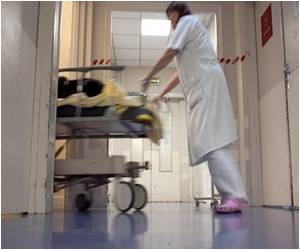Research has shown that hospitals across England reduced the rate of serious bloodstream infections in intensive care units (ICUs) during a two-year programme.

"This is a very impressive result," said Professor Julian Bion of Birmingham University, who was clinical lead for the initiative. "No national data existed before this programme. The work showed that ICUs were already performing well at the beginning, with half the infection rate seen at the start of the equivalent US effort. By the end, two thirds of the English ICUs were reporting no infections."
Intriguingly, while infection rates declined in ICUs that were in the programme, they were also declining just as fast in ICUs that were waiting to join the programme.
Now research conducted alongside the programme, led by Professor Mary Dixon-Woods of the University of Leicester, and funded by the independent health improvement charity the Health Foundation, has been able to identify the reasons for this.
"ICUs were already responding to the evidence of best practice in this area and to policy pressures by the time the programme came along," she commented. "Simply carrying out five key practices consistently can help control infections. Our research showed that many units had already improved their procedures, and several showed considerable ingenuity in making care safer for patients."
The five practices are: observing strict hand hygiene; cleaning the skin with the correct antiseptic; avoiding the groin as the route of insertion; using full barrier protection – cap, gown, gloves and mask; and reviewing daily whether the patient still needs the catheter.
Advertisement
"The programme cannot take all the credit for the improvements seen," said Professor Bion. "But the outcome is that care is safer for patients, and NHS staff are to be congratulated for this. The programme has provided the foundation for establishing a clinically-led national infection reduction system for ICUs in England."
Advertisement
Source-Eurekalert










